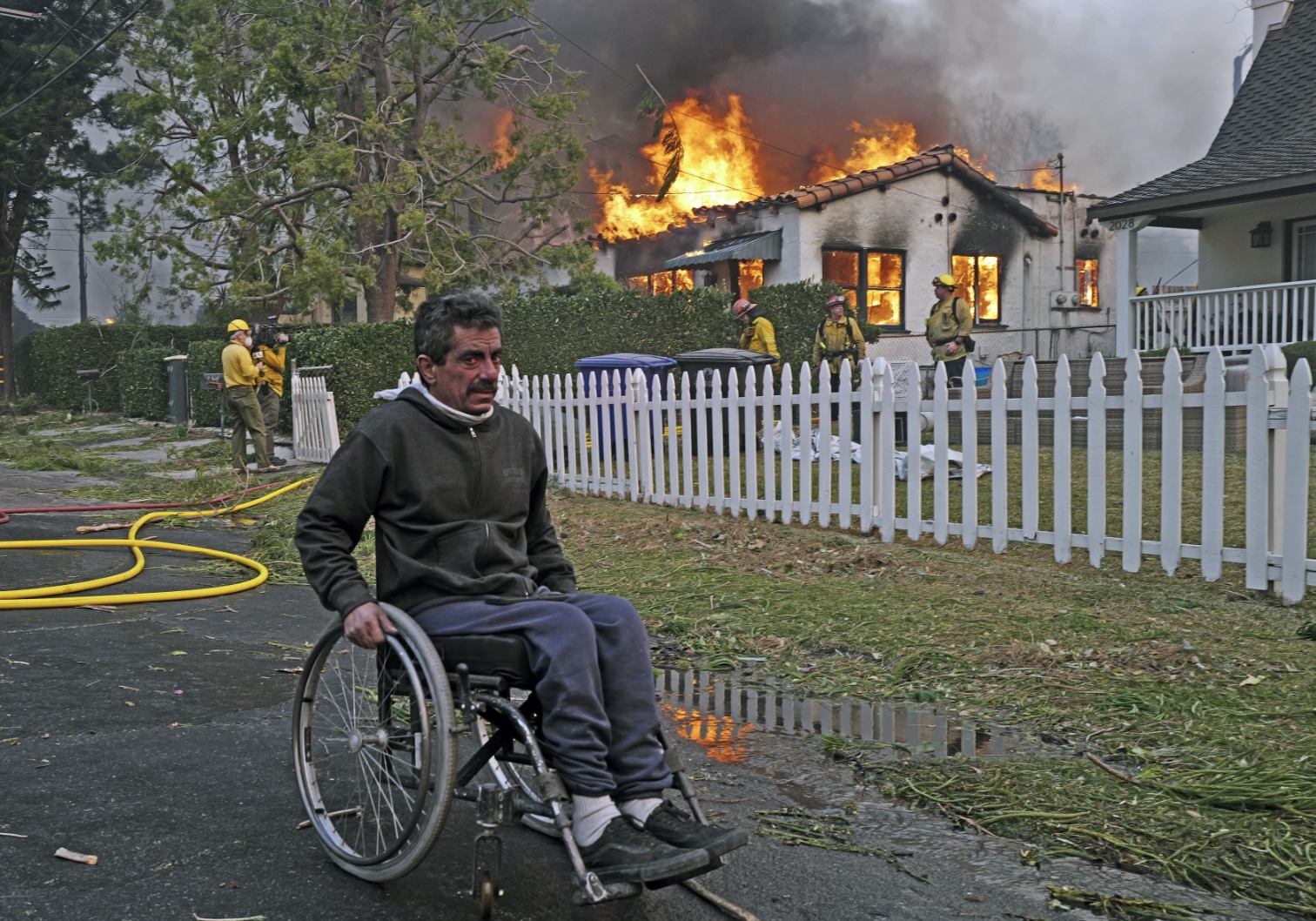How You Can Help Address the Wildfire Crisis
By María Morena Vicente and Emiliano Rodríguez Nuesch
In our recent article, "Wildfires in Los Angeles: From Slow Violence to Fast Destruction," we explored how colonial fire suppression, urban sprawl, and climate change have fueled the wildfire crisis.
The scale of destruction often leads not only to psychic numbing but to the feeling of pseudoinefficacy, where emotional connection and useful action feel impossible. Yet recognizing that collective action starts with small, meaningful steps can help overcome this paralysis and create real impact.
Whether you’re reading this from San Francisco, Paris, or Berlin, there are concrete ways you can help communities in Los Angeles.
Practical Ways to Support Wildfire Relief and Prevention
Burning fires in Altadena, Calif., are shown on Jan. 8. 2025. Maxar.
Donate to Trusted Organizations
Direct Relief — Provides critical aid to disaster-affected areas, including wildfire victims.
California Fire Foundation — Supports firefighters and their families, along with community recovery efforts
American Red Cross — Provides shelter, food, and other assistance to those affected by the LA fires, leveraging its trusted reputation and vast resources.
Los Angeles County Animal Care Foundation — Supports pets and wildlife affected by the fires, offering emergency care, supplies, and housing to animals in need.
World Central Kitchen — Delivers meals to communities affected by disasters, including wildfire zones.
The Nature Conservancy — Advocates for climate solutions and sustainable land management to reduce wildfire risks.
Baby2Baby — Provides essential items like diapers, formula, and hygiene products to children and families affected by wildfires.
In Defense of Animals — Offers temporary housing and resources, including veterinary supplies, for wild and domestic animals impacted by fires.
Dream Center — Provides emergency shelter to evacuees of fires in Southern California.
Lagartijas Climbing Crú — A BIPOC climbing club connecting fire victims with donations like sleeping bags and dehydrated meals. Their initiative includes an open Google spreadsheet to match donations with those in need, helping victims receive gear and essential supplies.
Altadena neighborhood as firefighters fight the Eaton Fire. (Nick Ut/Getty Images).
Volunteer and connect with the community
If you are in the Los Angeles County Region:
• Volunteer Collective — Offers an updated list of volunteer opportunities and drives.
• L.A. Works — Check their list of volunteer opportunities to support wildfire relief efforts.
• LAIT911 — Join their disaster response and recovery team, assisting with donation collection and delivery.
• Canine Rescue Club — Volunteers are needed to provide temporary foster care for dogs displaced by the fires. Apply to temporarily house an affected dog by filling out their online form.
• LA Regional Food Bank — Accepting food donations and volunteers. Locations are open from 8 a.m. to 5 p.m. on weekdays and 8 a.m. to 3 p.m. on Saturdays.
• Habitat for Humanity — Sign up to volunteer with their wildfire relief efforts. As specific opportunities arise, you will be notified.
Sinaloa Avenue in Altadena. (Robert Gauthier / Los Angeles Times).
Young people distribute water and clothing to victims of the Eaton Fire in Altadena, California. Ringo Chiu/Reuters.
Support Indigenous Fire Practices
Indigenous communities have successfully managed forests through controlled burns for centuries. Support organizations that amplify Indigenous voices and restore these practices, such as:
• Indigenous Environmental Network
• Cultural Fire Management Council
Advocate for Policy Change
Support policies that address the root causes of wildfires, such as climate change mitigation, forest management reform, and stricter development regulations in the wildland-urban interface (WUI). Reach out to organizations like:
• Union of Concerned Scientists
Educate Yourself and Others
Knowledge empowers action. Follow official accounts and organizations for accurate updates and expert advice:
• CAL FIRE
• Fire Adapted Communities Learning Network
• Global Fire Monitoring Center
Reduce Your Carbon Footprint
Wildfires are exacerbated by climate change. Simple steps to reduce your emissions include:
• Opting for public transportation, biking, or walking whenever possible.
• Reducing meat consumption, as livestock agriculture contributes significantly to greenhouse gas emissions.
• Choosing energy-efficient appliances and renewable energy providers.
Small Actions, Big Impact
Tackling the wildfire crisis demands both immediate relief and long-term systemic change. While the problem may seem insurmountable, your actions—whether donating, advocating, or reducing your footprint contribute to the collective effort.
Ready to make a difference? Explore the links above to get started, and let’s move from overwhelm to action together.




